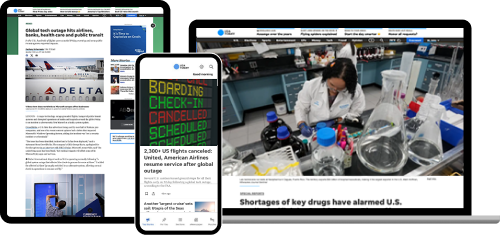Attention
Content protection notice
Crawling and scraping of our site is not permitted. If you are interested in our content, please email: distributedpartnerships@gannett.com to engage in a business discussion.

Crawling and scraping of our site is not permitted. If you are interested in our content, please email: distributedpartnerships@gannett.com to engage in a business discussion.
